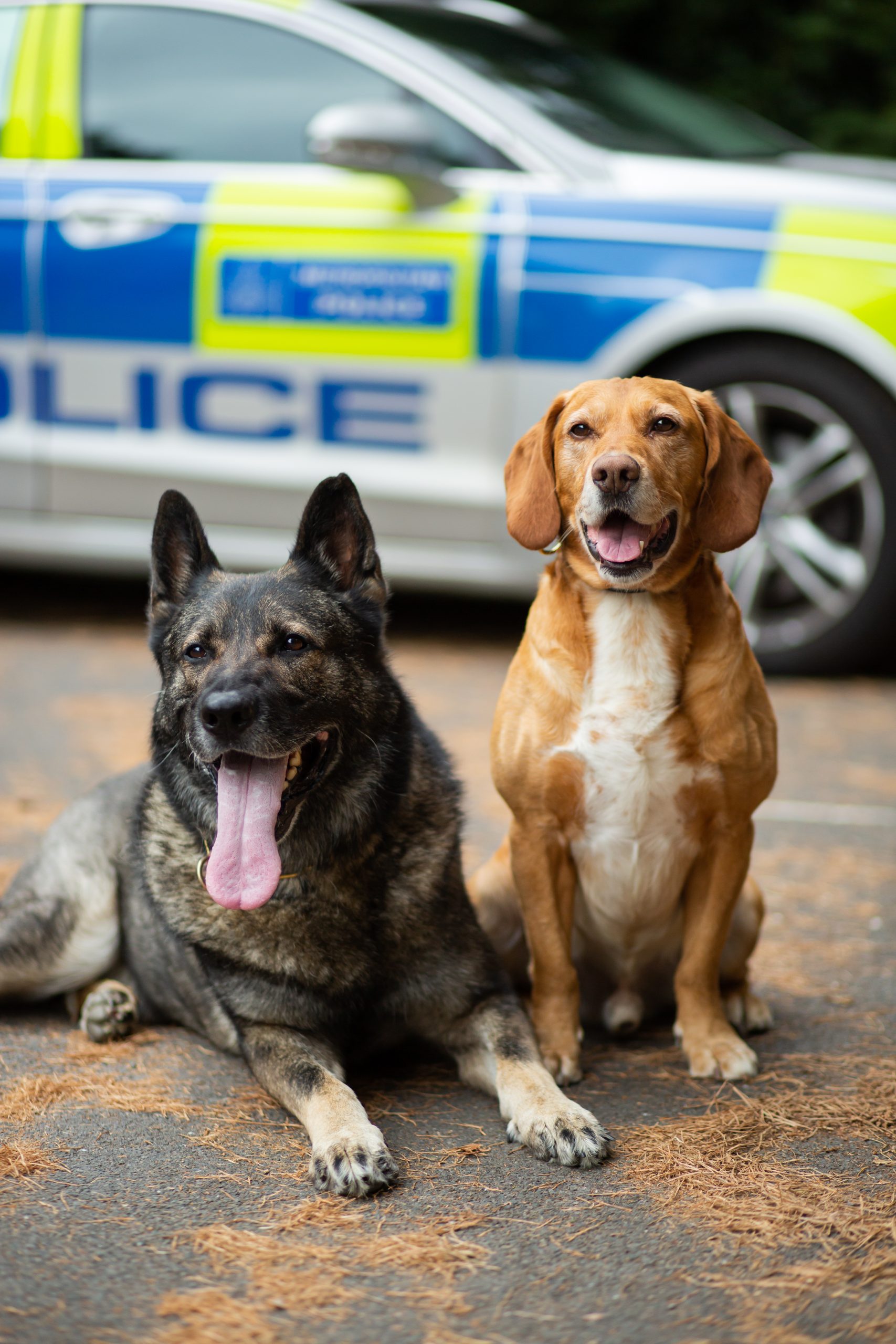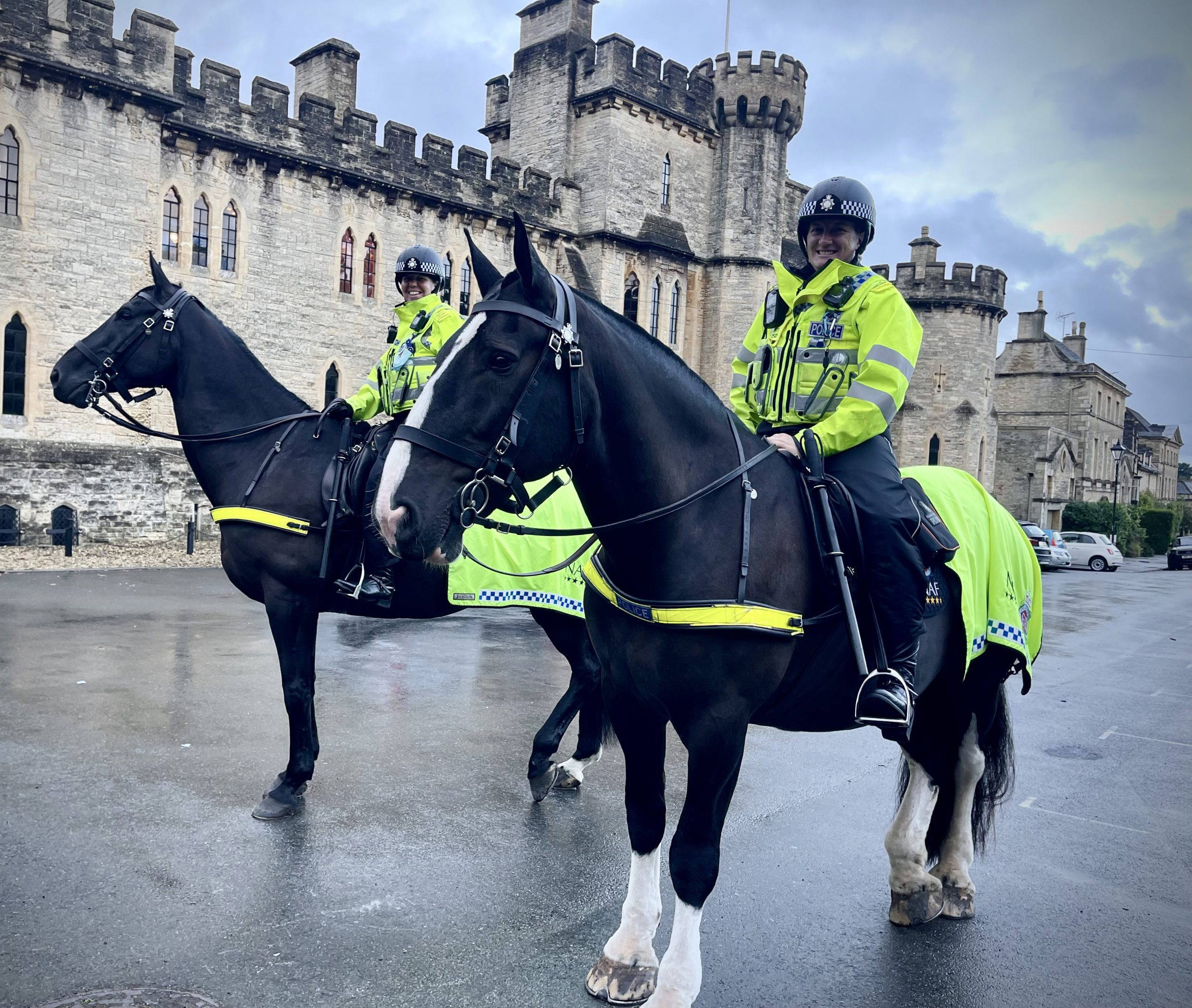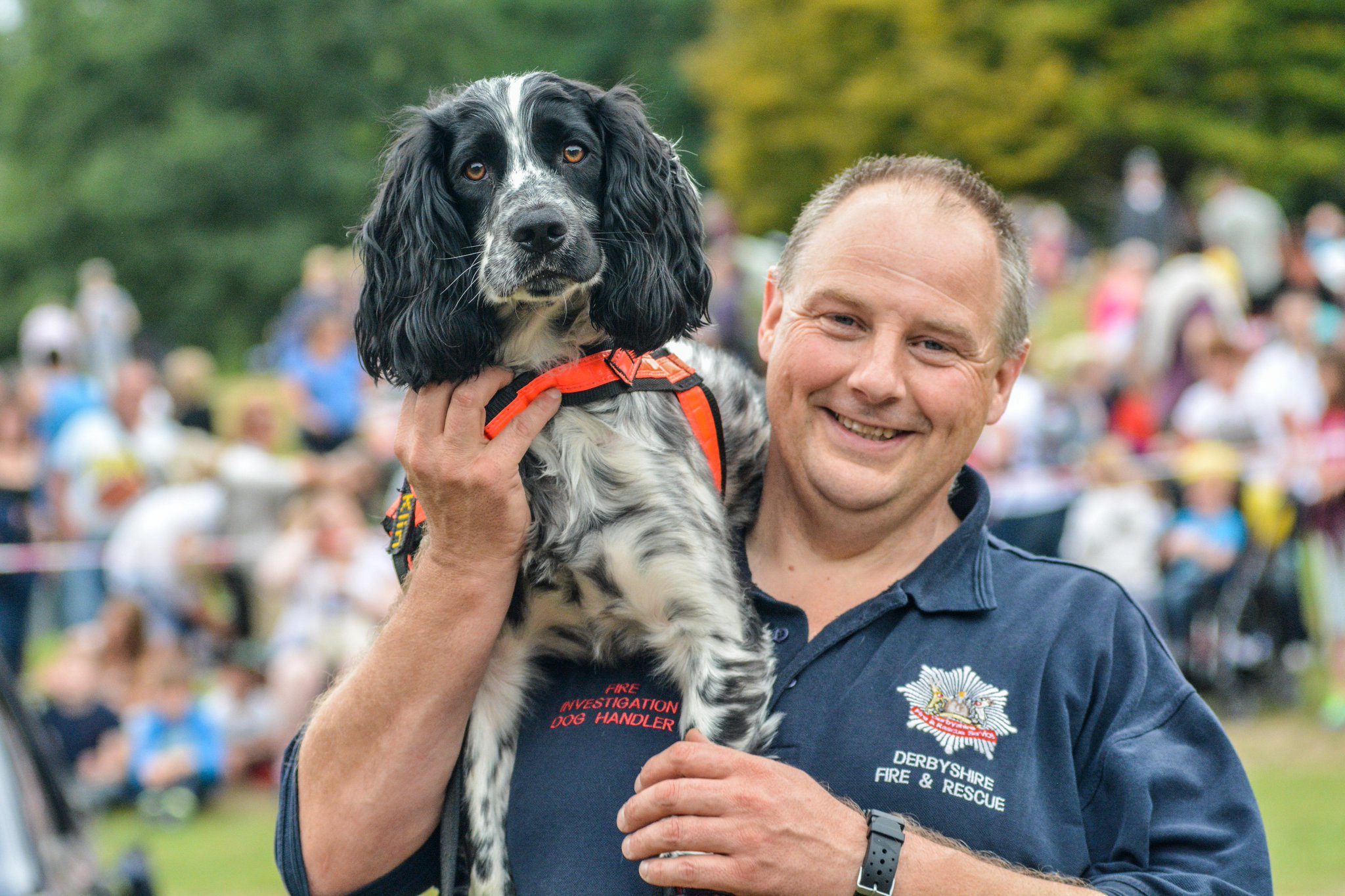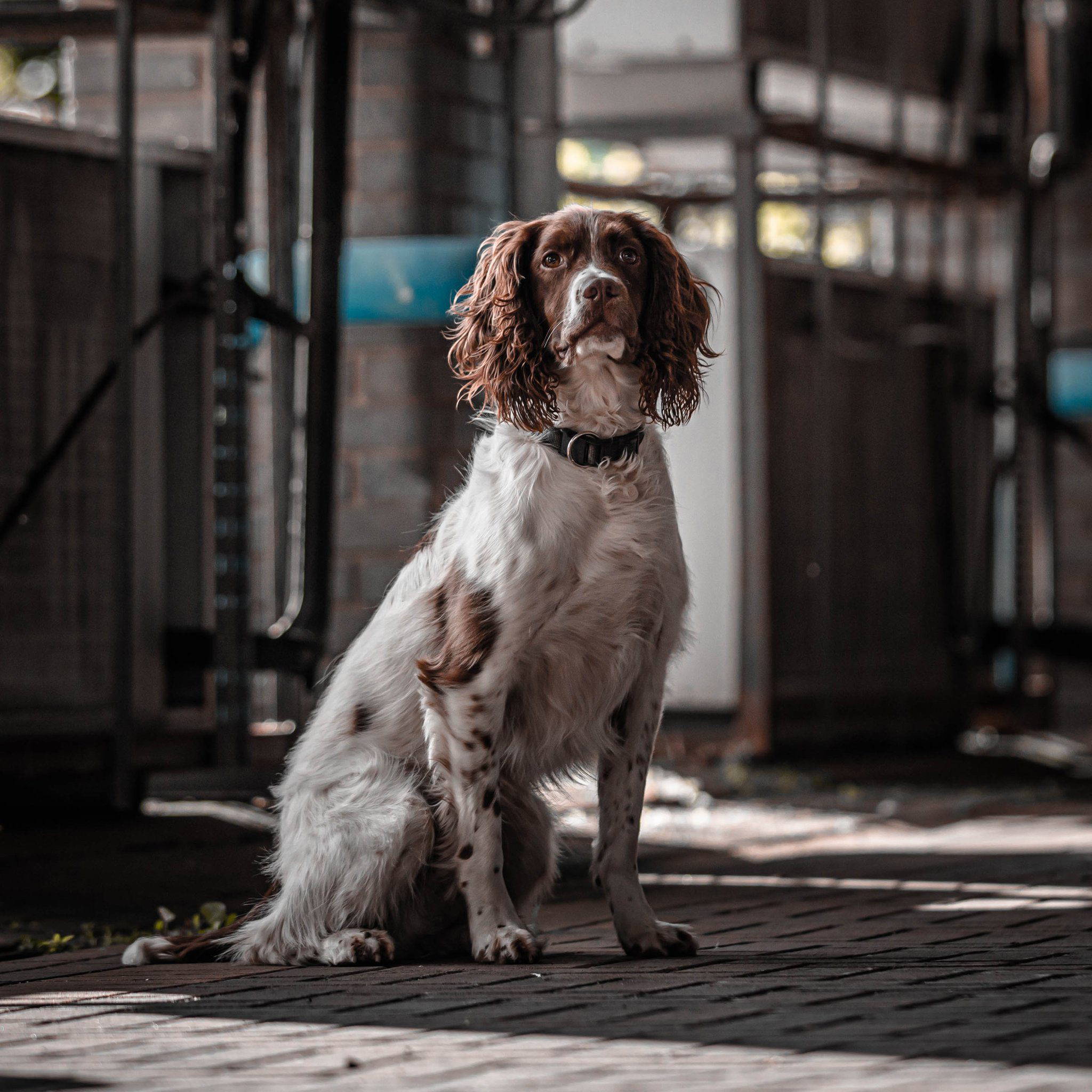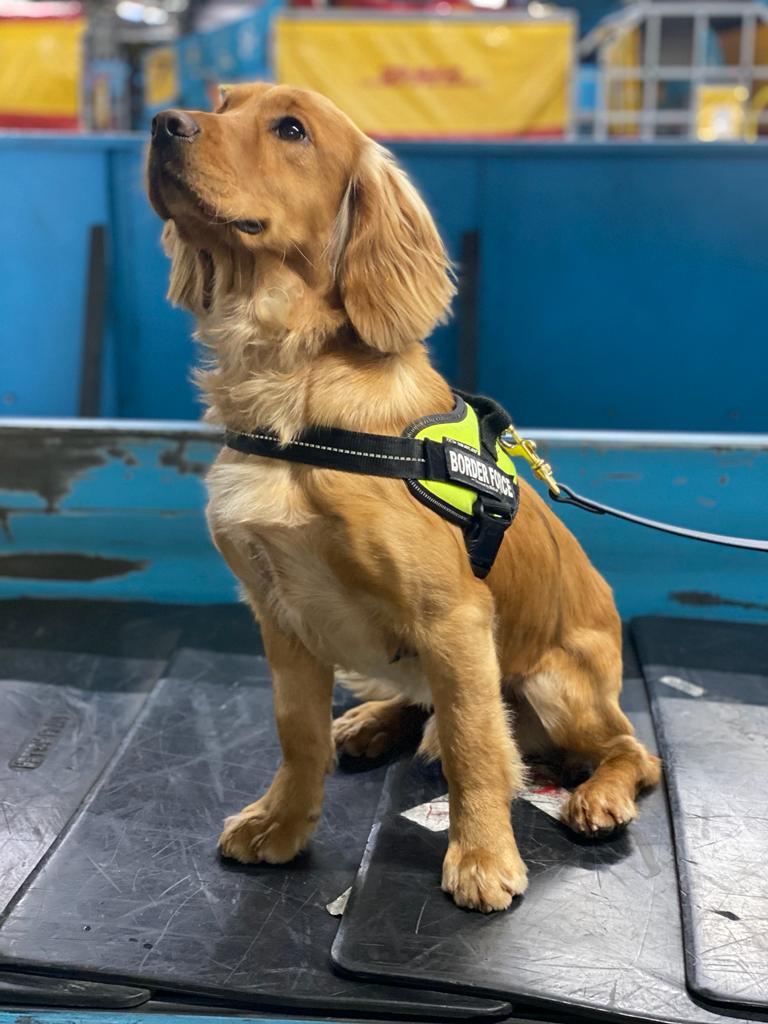Who We Help
Protecting our Protectors in their Retirement
The NFRSA is there to support our magnificent retired service animals. The work they do to keep the public safe throughout their careers is essential to the Police, Fire & Rescue, Prison, National Crime Agency, NHS, and Border Force services and we are ready to help them with their medical bills, when their working lives come to an end.
Who We Help
Police Dogs
There are around 2,000 police dogs that work across all the police forces within the UK.
What Are Police Dogs Trained For?
Police dogs are trained in a number of roles and disciplines including General Purpose Dogs, Firearms Support Dogs or Specialist Search Dogs.
General Purpose (GP) Dogs
General Purpose dogs are trained in multi-disciplines and undertake a wide range of roles including tracking suspects, searching for missing people, finding and recovering evidence, public order and operating in dangerous situations, providing protection to the public and their handler.
Firearms Support Dogs (FSD)
Firearms Support Dogs have a far higher level of training, attending incidents that require Firearms Officers (AFO’s).
Specialist Search Dogs
Specialist search dogs are trained to locate and identify explosives, drugs, firearms, cash, ammunition, bodily fluids, dead bodies, and can even find hard drives or SIM cards.
What Breeds Are Used for Police Dogs?
GP and FSD dogs are a variety of breeds, including German or Belgian Shepherds, Malinois, or Dutch Herders. Specialist search dogs are mostly Labradors, Spaniels and cross breeds. All require a high drive, and preferably the love of a tennis ball, to be able to perform their role.
Police Dogs are allocated to specific handlers, with many working alongside both a GP/FSD and a specialist search dog. They work as a team forming a close bond, living with the handler at the family home.
When Do Police Dogs Retire?
Most police dogs work until they are approximately 8 years of age and when they reach retirement most hope to remain with their handler as a pet.
The work of the NFRSA will ensure handlers will be able to keep their companions and partners into their retirement, so the dogs are able to live their best lives in their advancing years, with the family they have always known, and without the worry of the potential costs of their care and well-being. And if the dogs are re-homed, their new families will also have that reassurance.
Your support will make a huge difference to our work. You can choose a one-off donation, or a monthly contribution by clicking the button below.
Thank you so much for your donations!
Who We Help
Police Horses
What Does It Take To Be A Police Horse?
The basic requirements for a police horse when they join the force is they are aged between 4 and 9 years, have some schooling commensurate to their age, with a minimum height of 16.3 ‘hands’ (or 1.70 metres), a good confirmation and good feet, and are of a medium to heavy build.
The colour doesn’t matter, although a solid colour is preferred due to some ceremonial duties – but it is essential they have a calm and trainable character, which would include being non-reactive to traffic.
What Training Does A Police Horse Receive?
Initially a new horse will come on trial for 4-6 weeks and undergo both 2 and 5 stage veterinary assessments. During this stage it will be ridden by experienced trainers in a variety of low level situations. It may not be used for police work of any kind during this period.
Once the trial is completed and the horse has been purchased it will be known as a “Remount”. It will continue training for between 6 months to 2 years (depending on the horse’s age, temperament and experience). This will initially be with an experienced trainer and then passed over to an allocated Intermediate rider to progress. Once it has reached a level where it has demonstrated consistency, being safe and effective in all operational environments and can be used as an operational resource, it will be known as a “Standard /Operational Horse”
Training will include a variety of general schooling, groundwork (lungeing and long reining), nuisance training, patrol training, trop drill rides, and public order training.
What Are A Police Horse’s Duties?
Police horses work on average between 5-6 days / week with 1-2 rest days. Where possible they will receive turn out to graze and rest in fields alongside this. The week will comprise of a mixture of training, patrols and events.
Some of these may include community engagement patrols, operations (for example ‘Op Servator’ which is anti-terrorism), working with partner organisations (for example The British Horse Society ‘Dead Slow’ campaign), rural patrols, assisting in missing persons searches, school visits and community events, Ceremonial events, football/rugby/racing/concert events – in fact any event with large crowds, night-time economy (town patrols), public order events, and mutual aid to other forces.
Do Police Horses Have An ID?
On reaching “Operational standard” a horse will receive its Operational name, collar number and the title PH (Police Horse). This will be in line with a forces tradition (Gloucestershire Horses are all named after local places) for example PH Prestbury PH005. They are protected by law and any assault to them is regarded as serious as assaulting an officer.
When Does A Police Horse Retire?
A police horse may start its career as young as 4 years old, others may join at a later stage. In good health and soundness, a Police horse will continue its career into its mid- twenties when it is generally advised for any horse to resume a quieter life. Some sadly do accrue injury and ill health and will serve a shorter career. The Horse Trust in Berkshire cater for any retired service animal who have 4 or more years in service.
Others may retire to private homes at the discretion of the force, and it is at this point that the NFRSA will be there to support our police horses in their retirement when they are on need of veterinary assistance.
Please help us to support them in their twilight years by donating to the NFRSA today. You can choose a one-off donation, or a monthly contribution by clicking the button below.
Thank you for your help!
Who We Help
Fire Dogs & USAR Dogs
Fire Investigation Dogs (FISD)
Fire Investigation Search Dogs (FISD) have been operational within the UK for over two decades. Today there are around 18 operational dogs across the UK, many of whom are employed by Fire & Rescue Services.
How Long Does It Take to Train a Fire Dog?
Fire Investigation Search Dogs become operational after between six to eight weeks intensive training. They are able to search a cold fire scene and detect the presence of liquid ignitable accelerants such as petrol, diesel, white spirits, and many more. These accelerants may have been used to deliberately start a fire, and the FISD are able to detect and indicate even the smallest amounts left behind.
Some of these deployments can be extremely challenging and dangerous, but the handler will always ensure the dogs welfare and safety is of the most paramount importance.
Why Use Fire Investigation Dogs?
Fire Investigation Search Dogs have been fundamental in supporting the collection of evidence for many crimes, including murder and they have played a vital role in the progression and development of the detection of liquid ignitable accelerants at deliberate fire scenes across the world.
FISD are required to maintain a high standard of training and conduct annual licensing which is regularly supported by local Police Dog Sections.
What Happens when a FISD Retires?
On retirement the FISD will often stay with their handler due to the close bond developed over the dog and handlers career.
As it is very difficult to find affordable insurance, the NFRSA will be there to step in when help is needed with medical costs.
Urban Search & Rescue Dogs
Urban Search and Rescue Dogs, or USAR dogs as they are more commonly known, have been operational within the UK since 2004. They are trained to search disaster scenes such as a building collapse, or earthquakes where they can search for trapped survivors.
What Do USAR Dogs Do?
USAR dogs are highly trained to search large and challenging areas for live casualties and indicate their location to their handler. The dogs can search rubble piles, tunnels, and confined spaces as part of their role.
Where are USAR Dogs Deployed?
USAR Dogs have been deployed to extremely arduous and dangerous scenes around the UK, and on occasion across the world, but at all times the handler will ensure the dogs welfare and safety.
For example, many USAR dogs also support the UK national response to disasters through their voluntary role as part of International Search & Rescue (ISAR). This role has seen the dogs being deployed all over the world and play a vital part in saving lives.
USAR dogs undertake an arduous development pathway – it can take the dog and handler up to 18 months to obtain their license – and they are managed by National Resilience. Both dog and handler are required to undertake a challenging licensing process every 12 months to remain operational.
What Happens When A USAR/ISAR Dog Retires?
On retirement the USAR Dog, just like Fire Investigation Search Dogs, will often stay with their handler due to the close bond developed over the dog and handlers careers.
The NFRSA will always be waiting in the wings for these amazing dogs in their retirement and will contribute to any ongoing veterinary needs they may require in their twilight years.
Your donation will help us in our work, and you can support us by clicking the button below.
Thank you so much for your generosity!
Who We Help
Prison Dogs
Prison Dogs play a vital part in the physical security of a prison. There are varying specialist roles within search dogs and discipline dogs, such as drug detection and explosive detection dogs, as well as passive and active search dogs.
Who Handles Prison Dogs?
Dog handlers are sourced from serving prison officers who have completed their probationary period and express an interest in becoming a dog handler. They then complete in house training of approximately ten weeks to achieve a high level of competence.
Each year the dog team complete extensive training and are then assessed to maintain their licence to operate.
What Does a Dog Handler Do?
The duty of a dog handler within the prison service is not just a job, but a way of life, as the care and maintenance of the of prison dogs often starts early before the shift starts, and finishes long after it ends.
From the work of General Purpose Dogs, who maintain security and order within the prison estates, to the work of search dogs who are highly trained to seek out explosives, drugs, mobile phones, cash and other contraband, their job is essential.
Each year the work of these extraordinary teams is celebrated at The National Dog Trials. Handlers across the country go through local selection and then represent their establishment on a national level, held at the Prison Service College in Warwickshire.
When Do Prison Dogs Retire?
Prison dogs will generally retire between the ages of 8-9 and usually stay with their handler with whom they share an unbreakable bond.
But as they grow older, veterinary assistance becomes almost inevitable and the NFRSA will be there for their needs.
Please help us in our pledge to ‘Protect our Protectors’ by clicking the button below and donating – your generosity will save the lives of these amazing animals and ensure their retirement is one of comfort, health, and happiness.
Thank you for your support!
Who We Help
Border Force Dogs
Border Force Detector Dogs are a specialist canine resource working to help keep the UK safe by detecting illicit goods from entering the UK.
The team is made up of a central unit which provides advice, Dog and Handler training and practical support to 8 regional dog units based across the UK comprising a total of 70 dogs and 95 staff.
They are Nationally and Internationally recognised for their work in areas such as currency detection, document detection, and kennel enrichment.
For more information click here!
As with all the services we support, we give assistance to Border Force dogs in their retirement and your contribution will help us to do that. Please consider donating using the link provided.
Thank you so much for your generosity!
Grant Application
How to apply for a grant
Please return your application, with the signed declaration and relevant documents to the address below, or via email. Please note – retired service animals must be registered as a member, and need to have re-licensed at least once in order to qualify for assistance:
The NFRSA
Administration Office
Cirencester Park
Cirencester
Glos. GL7 2BT
grants@nfrsa.org.uk
Who We Help
Police Dogs
There are around 2,000 police dogs that work across all the police forces within the UK.
What Are Police Dogs Trained For?
Police dogs are trained in a number of roles and disciplines including General Purpose Dogs, Firearms Support Dogs or Specialist Search Dogs.
General Purpose (GP) Dogs
General Purpose dogs are trained in multi-disciplines and undertake a wide range of roles including tracking suspects, searching for missing people, finding and recovering evidence, public order and operating in dangerous situations, providing protection to the public and their handler.
Firearms Support Dogs (FSD)
Firearms Support Dogs have a far higher level of training, attending incidents that require Firearms Officers (AFO’s).
Specialist Search Dogs
Specialist search dogs are trained to locate and identify explosives, drugs, firearms, cash, ammunition, bodily fluids, dead bodies, and can even find hard drives or SIM cards.
What Breeds Are Used for Police Dogs?
GP and FSD dogs are a variety of breeds, including German or Belgian Shepherds, Malinois, or Dutch Herders. Specialist search dogs are mostly Labradors, Spaniels and cross breeds. All require a high drive, and preferably the love of a tennis ball, to be able to perform their role.
Police Dogs are allocated to specific handlers, with many working alongside both a GP/FSD and a specialist search dog. They work as a team forming a close bond, living with the handler at the family home.
When Do Police Dogs Retire?
Most police dogs work until they are approximately 8 years of age and when they reach retirement most hope to remain with their handler as a pet.
The work of the NFRSA will ensure handlers will be able to keep their companions and partners into their retirement, so the dogs are able to live their best lives in their advancing years, with the family they have always known, and without the worry of the potential costs of their care and well-being. And if the dogs are re-homed, their new families will also have that reassurance.
Your support will make a huge difference to our work. You can choose a one-off donation, or a monthly contribution by clicking the button below.
Thank you so much for your support!
Who We Help
Police Horses
What Does It Take To Be A Police Horse?
The basic requirements for a police horse when they join the force is they are aged between 4 and 9 years, have some schooling commensurate to their age, with a minimum height of 16.3 ‘hands’ (or 1.70 metres), a good confirmation and good feet, and are of a medium to heavy build.
The colour doesn’t matter, although a solid colour is preferred due to some ceremonial duties – but it is essential they have a calm and trainable character, which would include being non-reactive to traffic.
What Training Does A Police Horse Receive?
Initially a new horse will come on trial for 4-6 weeks and undergo both 2 and 5 stage veterinary assessments. During this stage it will be ridden by experienced trainers in a variety of low level situations. It may not be used for police work of any kind during this period.
Once the trial is completed and the horse has been purchased it will be known as a “Remount”. It will continue training for between 6 months to 2 years (depending on the horse’s age, temperament and experience). This will initially be with an experienced trainer and then passed over to an allocated Intermediate rider to progress. Once it has reached a level where it has demonstrated consistency, being safe and effective in all operational environments and can be used as an operational resource, it will be known as a “Standard /Operational Horse”
Training will include a variety of general schooling, groundwork (lungeing and long reining), nuisance training, patrol training, trop drill rides, and public order training.
What Are A Police Horse’s Duties?
Police horses work on average between 5-6 days / week with 1-2 rest days. Where possible they will receive turn out to graze and rest in fields alongside this. The week will comprise of a mixture of training, patrols and events.
Some of these may include community engagement patrols, operations (for example ‘Op Servator’ which is anti-terrorism), working with partner organisations (for example The British Horse Society ‘Dead Slow’ campaign), rural patrols, assisting in missing persons searches, school visits and community events, Ceremonial events, football/rugby/racing/concert events – in fact any event with large crowds, night-time economy (town patrols), public order events, and mutual aid to other forces.
Do Police Horses Have An ID?
On reaching “Operational standard” a horse will receive its Operational name, collar number and the title PH (Police Horse). This will be in line with a forces tradition (Gloucestershire Horses are all named after local places) for example PH Prestbury PH005. They are protected by law and any assault to them is regarded as serious as assaulting an officer.
When Does A Police Horse Retire?
A police horse may start its career as young as 4 years old, others may join at a later stage. In good health and soundness, a Police horse will continue its career into its mid- twenties when it is generally advised for any horse to resume a quieter life. Some sadly do accrue injury and ill health and will serve a shorter career. The Horse Trust in Berkshire cater for any retired service animal who have 4 or more years in service. Others may retire to private homes at the discretion of the force, and it is at this point that The NFRSA will be there to support our police horses in their retirement.
Others may retire to private homes at the discretion of the force, and it is at this point that the NFRSA will be there to support our police horses in their retirement when they are on need of veterinary assistance.
Please help us to support them in their twilight years by donating to the NFRSA today. You can choose a one-off donation, or a monthly contribution by clicking the button below.
Thank you for your help!
Who We Help
Fire Dogs
Fire Investigation Dogs (FISD)
Fire Investigation Search Dogs (FISD) have been operational within the UK for over two decades. Today there are around 18 operational dogs across the UK, many of which are employed by Fire & Rescue Services.
How Long Does It Take To Train A Fire Dog?
Fire Investigation Search Dogs become operational after between six to eight weeks intensive training. They are able to search a cold fire scene and detect the presence of liquid ignitable accelerants such as petrol, diesel, white spirits, and many more. These accelerants may have been used to deliberately start a fire, and the FISD are able to detect and indicate even the smallest amounts left behind.
Some of these deployments can be extremely challenging and dangerous, but the handler will always ensure the dogs welfare and safety is of the most paramount importance.
Why Use A Fire Dog?
Fire Investigation Search Dogs have been fundamental in supporting the collection of evidence for many crimes, including murder and they have played a vital role in the progression and development of the detection of liquid ignitable accelerants at deliberate fire scenes across the world.
FISD are required to maintain a high standard of training and conduct annual licensing which is regularly supported by local Police Dog Sections.
What Happens When A Fire Dog Retires?
On retirement the FISD will often stay with their handler due to the close bond developed over the dog and handlers career. As it is very difficult to gain meaningful insurance, the NFRSA will be there to step in when help is needed with medical costs.
Urban Search & Rescue or USAR Dogs
Urban Search & Rescue Dogs, or USAR dogs as they are more commonly known, have been operational within the UK since 2004. They are trained to search disaster scenes such as a building collapse, or earthquakes where they can search for trapped survivors.
What Do USAR Dogs Do?
The USAR dogs are highly trained to search large and challenging areas for live casualties and indicate their location to their handler. The dogs can search rubble piles, tunnels, and confined spaces as part of their role.
Where Are USAR Dogs Deployed?
USAR Dogs have been deployed to extremely arduous and dangerous scenes around the UK, and on occasion across the world, but at all times the handler will ensure the dogs welfare and safety.
For example, many USAR dogs also support the UK national response to disasters through their voluntary role as part of International Search & Rescue (ISAR). This role has seen the dogs being deployed all over the world and play a vital part in saving lives.
USAR dogs undertake an arduous development pathway – it can take the dog and handler up to 18 months to obtain their license – and they are managed by National Resilience. Both dog and handler are required to undertake a challenging licensing process every 12 months to remain operational.
What Happens When A USAR/ISAR Dog Retires?
On retirement the USAR Dog, just like Fire Investigation Search Dogs, will often stay with their handler due to the close bond developed over the dog and handlers career.
How Does the NFRSA Help?
The NFRSA will always be waiting in the wings for these amazing dogs in their retirement and will contribute to any ongoing veterinary needs they may require in their twilight years.
Your donation will help us in our work, and you can support us by clicking the button below.
Thank you so much for your generosity!
Who We Help
Prison Dogs
Prison Dogs play a vital part in the physical security of a prison. There are varying specialist roles within search dogs and discipline dogs, such as drug detection and explosive detection dogs, as well as passive and active search dogs.
Who Handles Prison Dogs?
Dog handlers are sourced from serving prison officers who have completed their probationary period and express an interest in becoming a dog handler. They then complete in house training of approximately ten weeks to achieve a high level of competence.
Each year the dog team complete extensive training and are then assessed to maintain their licence to operate.
What Do Dog Handlers Do?
The duty of a dog handler within the prison service is not just a job, but a way of life, as the care and maintenance of the of prison dogs often starts early before the shift starts, and finishes long after it ends.
From the work of General Purpose Dogs, who maintain security and order within the prison estates, to the work of search dogs who are highly trained to seek out explosives, drugs, mobile phones, cash and other contraband, their job is essential.
Each year the work of these extraordinary teams is celebrated at The National Dog Trials. Handlers across the country go through local selection and then represent their establishment on a national level, held at the Prison Service College in Warwickshire.
When Do Prison Dogs Retire?
Prison dogs will generally retire between the ages of 8-9 and usually stay with their handler with whom they share an unbreakable bond.
But as they grow older, veterinary assistance becomes almost inevitable and the NFRSA will be there for their needs.
Please help us in our pledge to Protect Our Protectors by clicking the button below and donating – your generosity will save the lives of these amazing animals and ensure their retirement is one of comfort, health, and happiness.
Thank you for your support!
Who We Help
Fire Dogs
Border Force Detector Dogs are a specialist canine resource working to help keep the UK safe by detecting illicit goods from entering the UK.
The team is made up of a central unit which provides advice, Dog and Handler training and practical support to 8 regional dog units based across the UK comprising a total of 70 dogs and 95 staff.
They are Nationally and Internationally recognised for their work in areas such as currency detection, document detection, and kennel enrichment.
To find out more click here!
As with all the services we support, we give assistance to Border Force dogs in their retirement and your contribution will help us to do that. Please consider donating using the link provided.
Thank you so much for your generosity!
Grant Application
How to apply for a grant
IMPORTANT:
Please note – the following levels of assistance are applicable, and remain subject to available funds:
Animals will need to have re-licensed AT LEAST ONCE in order to qualify for a grant.
From 1 – 3 years service – up to 30%
From 3 – 5 years service – up to 50%
From 5 years service – up to 90%
Please return your application, with the signed declaration, relevant copies of invoices, and vets medical notes to the address or email below. It is incredibly important the above three pieces of documentation are included, as it may cause unnecessary delays, or rejection, if they are incomplete.
The NFRSA
Administration Office
Cirencester Park
Cirencester
Glos. GL7 2BT
info@nfrsa.org.uk
CONTACT US
Would you like to get involved, or find out more?
We would not be able to do what we do without our army of wonderful volunteers. If you feel you would like to help us in any capacity, whether it be administration or fundraising, please do get in touch using the form below.
Likewise, if you have something you'd like to ask us, please do so using the form below.
